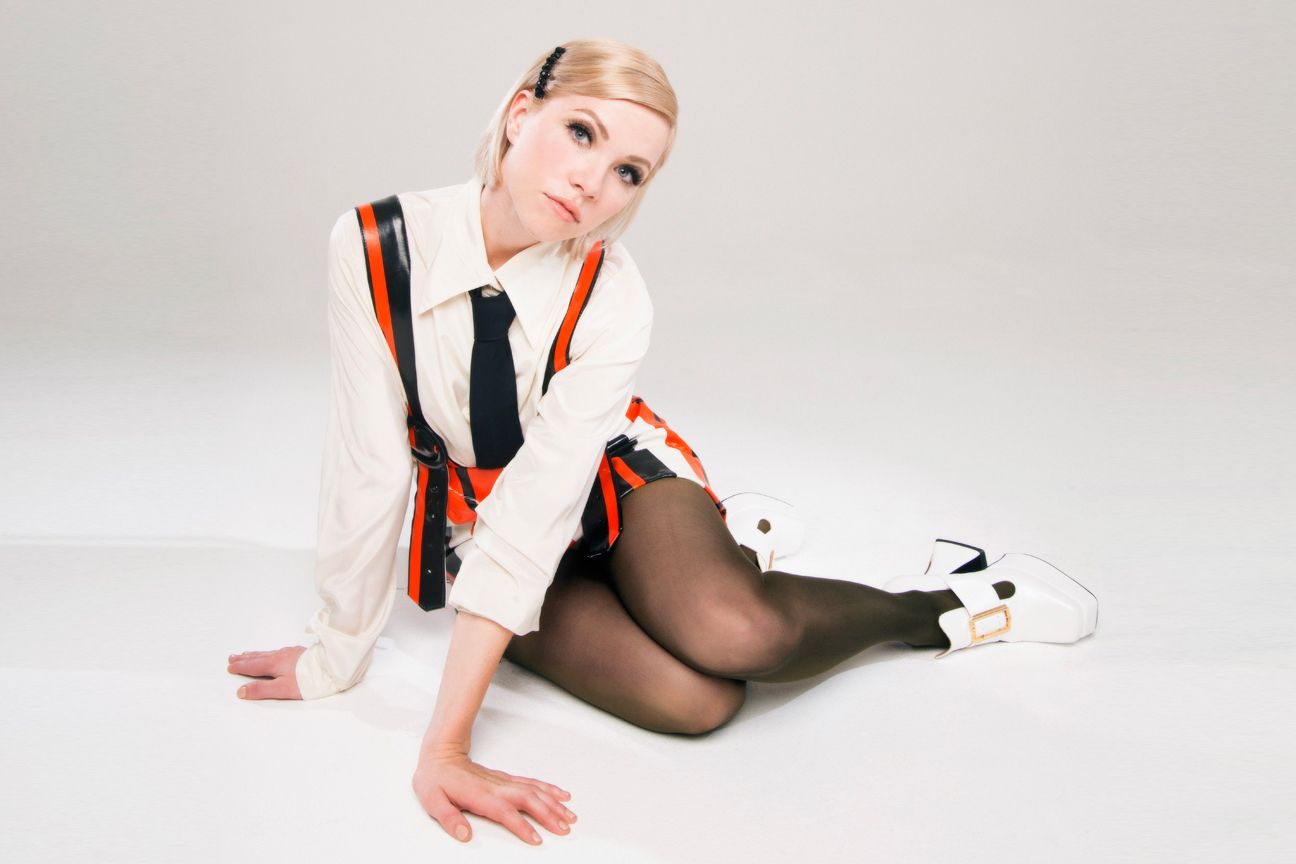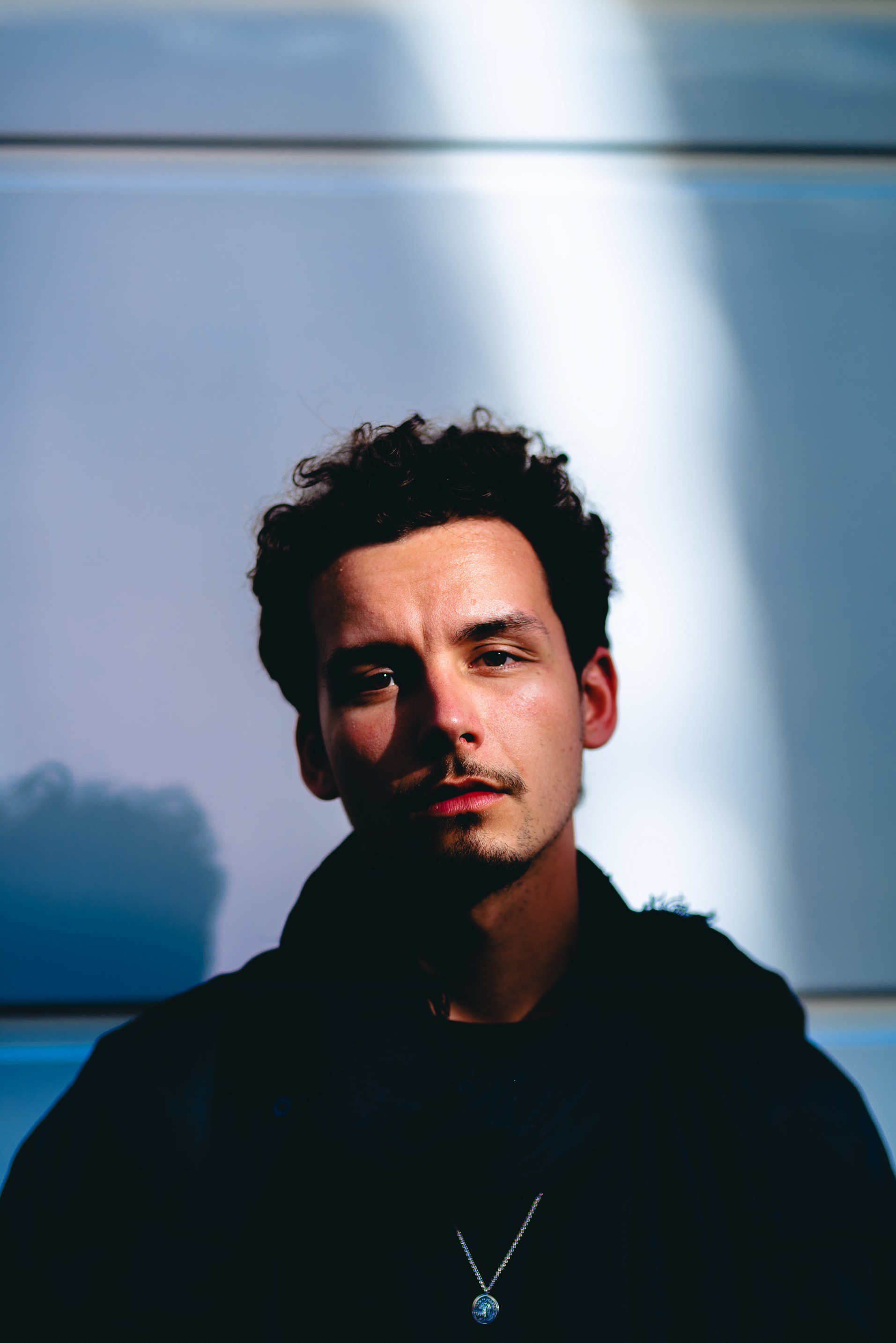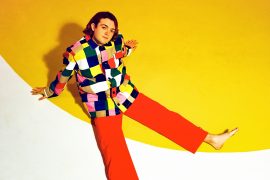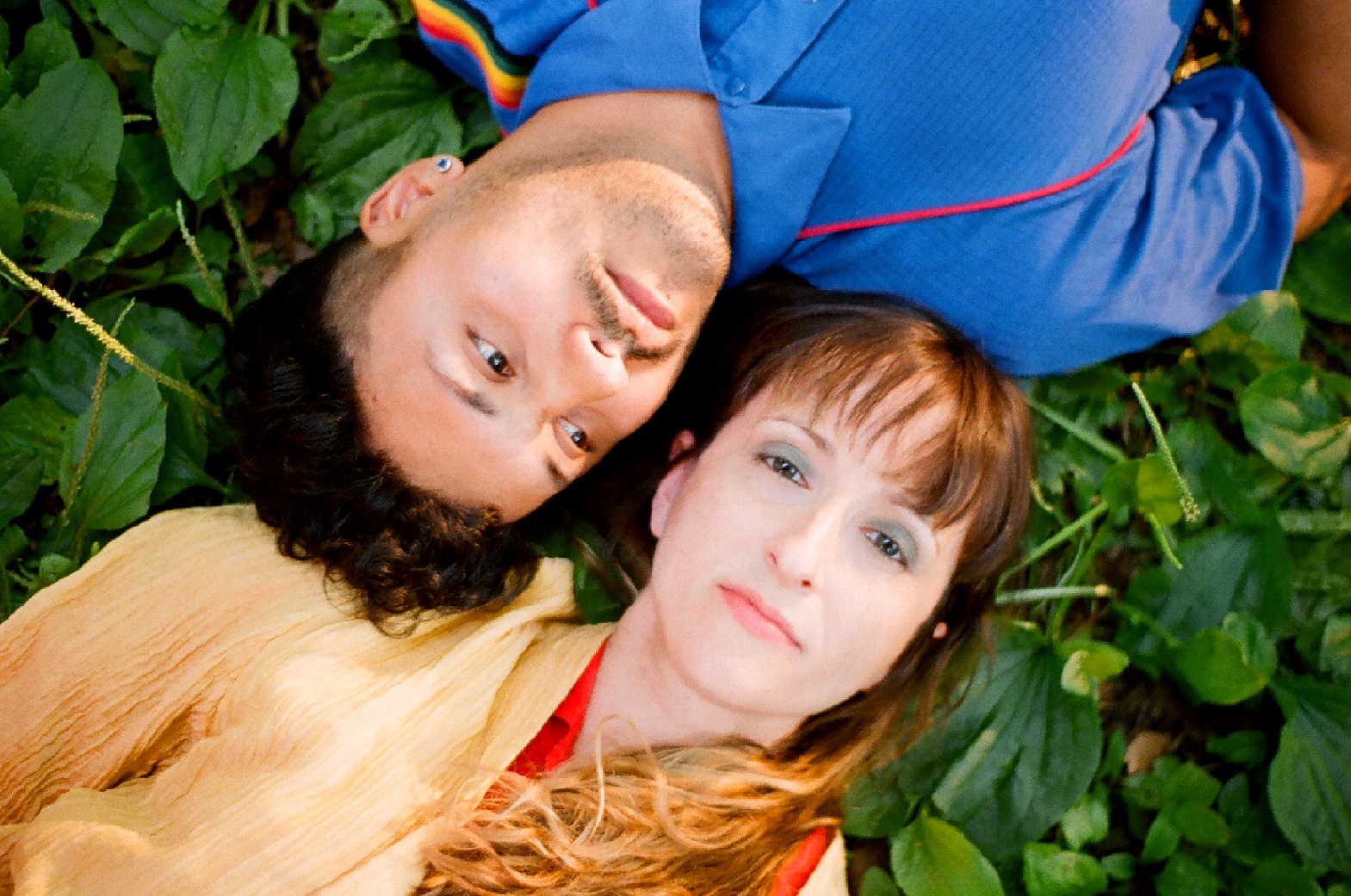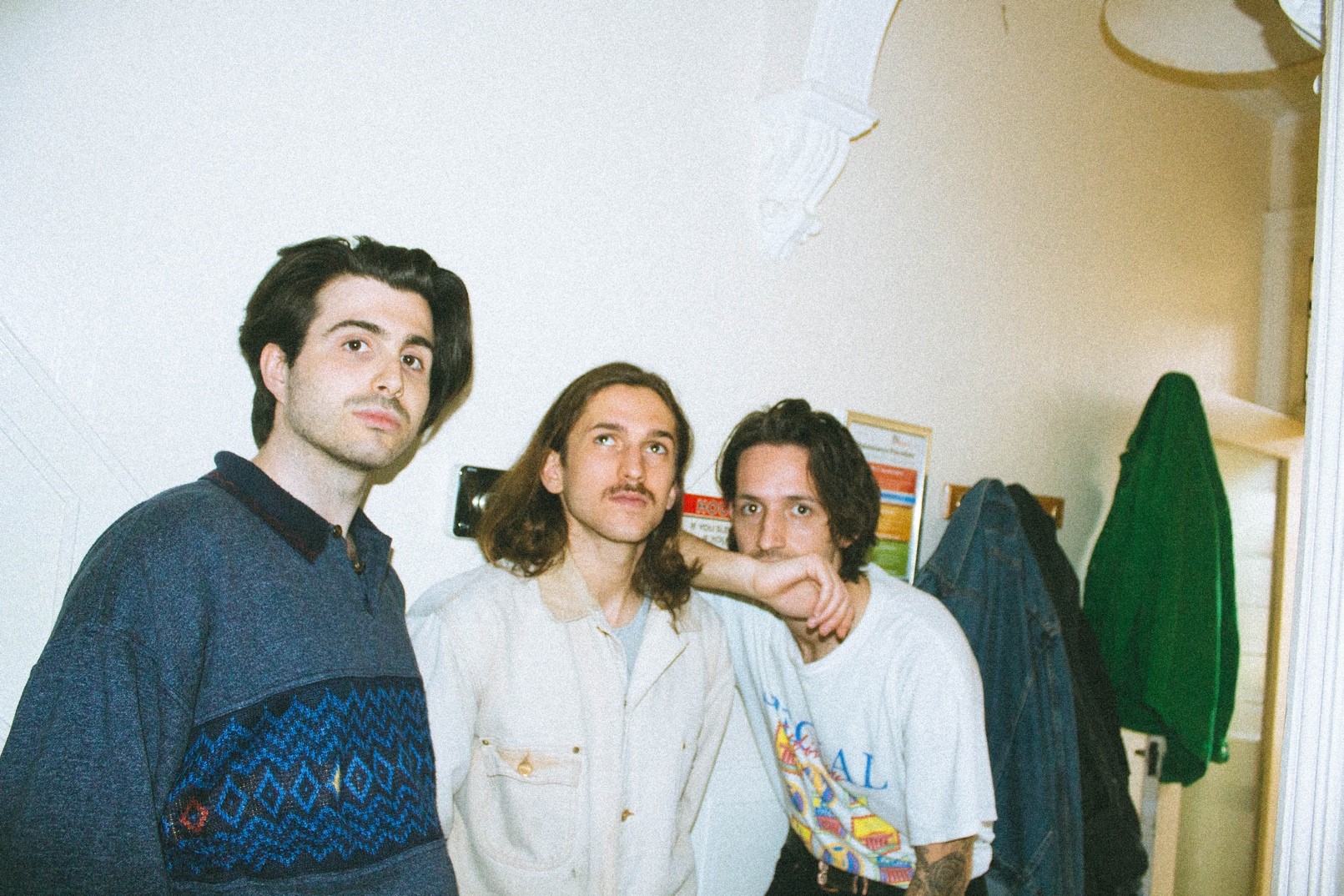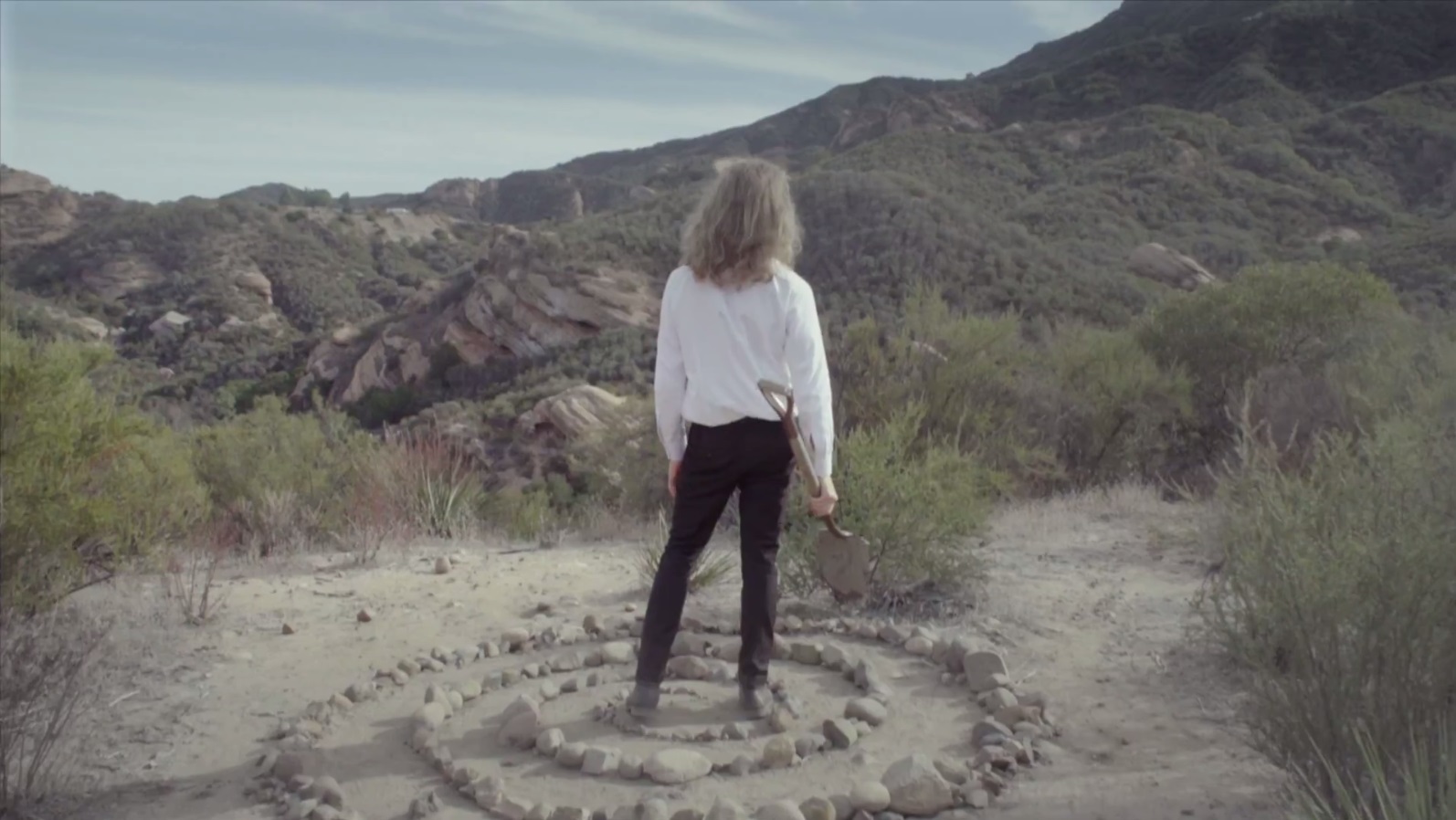Atwood Magazine sits down with artist and actor Alison Sudol to talk about the inspiration behind her new album ‘Still Come the Night’ and the importance of making space for grief.
Stream: ‘Still Come the Night’ – Alison Sudol
When I met Alison Sudol back in September, she was gearing up to release her album Still Come the Night (September 30, 2022 via Kartel Music Group). It is now October and reading back through our conversation I am struck by how present the grief still is as well as Sudol’s ability to recall moments in the studio when she was making the record. Sudol’s recollections along with the music itself still feels fresh.

In case you don’t know or didn’t make the connection like I didn’t, Sudol released three critically acclaimed albums under the moniker A Fine Frenzy. She is also known as the character Queenie Goldstein from the Harry Potter prequels.
On Valentine’s Day 2020, Sudol and her partner fled London an isolated cottage on a farm. Still Come the Night was inspired by intense grief Sudol and her partner experienced not long after making the cottage their temporary home, when they miscarried their first child in the early days of the pandemic. Listening to the music and the lyrics, you can’t help but feel the wildness of Sudol’s environment and inner world. There is softness in the music too. When one thinks of or remembers grief and loss, we usually remember the pain and the unstoppable rawness, but there is also the softness in the undoing and vulnerability that grief takes but also gives to us.
Sudol continued in this vibe by choosing to record Still Come the Night in Giant Wafer studios, a small studio space in Llanbadarn Fynydd in Wales. You only need to look at Google Images to see how beautiful, picturesque and seemingly unspoilt Llanbadarn Fynydd is. The album was recorded over four days alongside another record that Sudol was finishing. “So four days to make a record, having never really worked together before. Seemed reasonable enough…” Sudol laughs.
Sudol’s debut album under her own name was produced by Chris Hyson, of the band Snowpoet and engineered by Alex Killpatrick. Dive deeper into Still Come the Night in our interview below.
— —
:: stream/purchase Alison Sudol here ::
Watch: “Meteor Shower” – Alison Sudol
A CONVERSATION WITH ALISON SUDOL

Atwood Magazine: I'm aware the inspiration came from something very, very sad. What I thought was interesting in that you talk a lot about your partner’s role in the experience and his emotional reaction to the loss. This side of the loss of a child isn't always talked about because a miscarriage is something that happens to us, as women, and our partner, if we have one, doesn’t really configure in that experience.
Alison Sudol: Yeah. I’m glad that you picked up on that because that’s something that I think is really important to discuss and that isn’t, like you said, it isn’t something that gets a lot of attention.
When we went through this, it was very clear that everybody’s attention goes to the woman and obviously I went through the physical grief and also the intense emotional grief that’s tied in with that, let alone the hopes and dreams and everything that just changes in an instant. But he also lost and also went through something really traumatic and intense and was there with me through the entire thing and also felt pretty powerless in it all.
Every aspect of pregnancy, whether you miscarry or you go through full pregnancy and into parenthood, it teaches you that you are not in control. And to be the person who has even less control than the person who’s carrying the baby, it is really hard and men aren’t offered space to talk about it or to grieve. People focus on us and that was hard to witness and so I really did want to include him in every part of this record because he was so knitted into every aspect of this story with me.
A bit of a double question. You have said that the experience took place during lockdown in 2020, which must have just heightened the experience of isolation and loss for both of you as you literally only had each other. I also really felt for your partner listening to the songs because there isn’t really an avenue for men who experience this type of loss to express their emotions.
Are there other songs on the album that included your partner's feelings or things he'd said to you during this period of loss?
And with the title track, “Still Come the Night,” which is really lovely, and I like that it has some ambiguity to it in that it doesn't just apply to your particular situation. It can apply to losing someone, losing a parent, losing a friend, I guess even losing a relationship to some extent or even losing yourself. It also isn’t defined to female or male grief or experience, which again makes it even more ambiguous. Can you talk a bit about that song?
Alison Sudol: Oh, yeah. He’s in the whole album. He’s in every line because he’s just a really invested partner and like you said it, we were in lockdown, so it was particularly us, but that’s also our relationship. He’s my best friend and he’s just an incredible person. Going back to what you were talking about how the ‘Still Come the Night’ is not just really, it’s not just applicable to this grief. Something that he said, and I also experienced is that… because what happened to us, is so common but it shook us. I don’t think we were prepared for how much it would affect us, because you just can’t really know how you’re going to react to something until it happens. And what we particularly weren’t prepared for was that the insistency… Is that a word Insistency? How insistent, the grief cracked open parts of us that had been holding other grief and it was like the flood gates opened and because we sort of got… I don’t know, it was like a car crash, it was… We just were like totaled. And everything came out. And that’s a terrible analogy, please don’t say car crash, it was was a… I don’t know what the word would be. It was like a…
I guess it's like a chain reaction, isn't it?
Alison Sudol: Yeah, yeah.

The effect of something like losing a baby can just set it all off, and then if you were in a particular vulnerable state, which you are, if you have miscarried, and because of lockdown, and because of what was going on, it just let all this other stuff come out too. I know talking from experience, you think you dealt with, you think you've put to bed and then suddenly that all comes out.
Alison Sudol: Yeah and things that you are like, “I don’t need it, I don’t feel that. Yeah, done!” It just came out. So we found ourselves grieving a lot. And for me, in particular, the physicality of the grief lasted a much longer time than other types of grieving because… It’s not that the physicality of other grief, like losing people that I loved was less strong, but this was hormonal so it just kind of kept pushing things out as opposed to… In the past, when I lost somebody, I would cry a bit and then just shut it off.
This is an actual physical loss. Obviously all grief is a physical loss, but it's a physical loss from within you plus all the hormones, which is always lovely to experience that rollercoaster.
Alison Sudol: Oh god, yeah. I mean it’s so many things, but also what I’ve learned from this as well is that your body is so wise and every single aspect of it was a lesson for me because I was safe to experience it as such, and I was guided through with some really amazingly wise women who are around me. I was able to sit with what was coming up from each stage, so I can’t imagine if you had a loss like this and you had to go to work the next day in an environment where it wasn’t safe to freely emote, how you would maybe not have a chance to experience all of that, and I really… I feel so much compassion and heartache for women that go through this, and men as well, who go through that, because I was able to be a mess for quite a long time. It was not fun to be around, I think, and it was really tough to be in. But recording this album, I was laughing having the best time of my life, half of it, and then just in pieces, the rest just snot and tears at all times.
You recorded your album with a very small group of men. Because men don't experience a loss of a baby in the same way that we do, I'm wondering, did you feel when you recorded the album that you were in a safe environment and you could talk about it and be open in the creative process?
Alison Sudol: My experience with the band is that we didn’t know each other well, except Chris who produced the record. He is one of my partner’s best friends and their energy is kind of similar, and they’re just kind people and gentle. They just kinda sat there and let me go through what I needed to go through without making me feel embarrassed or awkward about it. They were deeply respectful of the story and the music, and I just felt really safe. I think what it comes down to ultimately is, are you with people that are gentle and going to hold space. I actually kind of needed, it’s hard to explain, but I needed a little bit of space.

I guess this also links to my next question. Do you feel like a different person from when you started writing, planning, recording the album to how you are today and when you finished the album? Was it a form of healing?
Alison Sudol: Yeah, I think that when you can’t talk about something like what you’re saying, it’s very difficult for it to fully heal. And I was able to explore so many colors of what I went through and be creative within it and sit with it, and every aspect of it was part of the processing. It’s not like it doesn’t still hold emotion for me because it just, it, I think it always will, but I feel like that being that it was with us for a short period of time, opened up just a tremendous amount of learning and creativity and yeah, I do feel different.
I had struggled for years with trying to work out my identity as an artist and I had gotten in the way of so much creativity. I’d gone back and forth on what I wanted to say and there’s just a lot of hesitation around what I made for our such a long time. And this just emerged and I was like, that’s what it’s meant to be. [chuckle] It was bigger than me. And that’s changed the course. The course of my creativity.
No, that's interesting. What was the first one you wrote for the record?
Alison Sudol: “Still Come the Night.” For the record, there’s a song which is a bonus track called “Hand on my Heart,” which will come out a bit later. That was written actually the day, prior to the loss, and then just after. “Still Come the Night” was the first song that was the bedrock of the album. I nearly didn’t include it though because it was just so painful.
It's a very beautiful song. It's very gentle song. It's has a very definite beginning and end, which not all songs do. Songs can just be like a sort of short of feeling, but this song you go with the character on their journey in the song, which I think is really powerful. And again like I said, it's, there's the ambiguity there. So, it can be whatever the listener chooses. And it will probably change throughout as people listen to it throughout their life as things do.
Alison Sudol: That’s the hope, isn’t it?
The bonus track, you wrote that before and then just after. I’m guessing that song changed shape quite drastically or did it stay the same?
Alison Sudol: Yeah, definitely changed shape. I could feel something was wrong, but I thought I was just being an anxious pregnant person. I wanted to sing to this baby to be sort of in communication with them and talk about just how excited I was to meet them. And then obviously that changed to this being more out of reach than I had known. Yeah. So that shifted a lot. But it’s a very sweet song.

The song “Playground” is very different to the rest of the album in terms of subject matter and sound, but it also isn’t because it’s about a loss of how your relationship used to be. Even if the relationship is great now, obviously there's that loss of innocence and bit of naivety and the newness and everything, which you can never get back but is always wonderful when it is happening.
Alison Sudol: It goes no matter what. It just will go.
It’s a hopeful song to have and it juxtaposes a lot of the heavier songs on the record. However, saying that, I was struck how light the album sounds when I listened to it, and does feel like it was recorded in the countryside with all the natural elements being so close to you. You're American, so I'm wondering whether your creative-self changes depending whether you are in the UK whether you are in the US.
Alison Sudol: Yeah, that’s funny yes definitely. I’m definitely influenced by my surroundings and by whom I’m recording with and the instrumentation that I lean towards is definitely different than when I make music in the US. And it kind of ebbs and flows. I’ve made music primarily here for the last seven years but I did have a band in America and even the way that they played music that was recorded here felt very different.
It’s fun to experience music differently. It is always complicated to take something, record it and then translate it live because it’s always going be an adjustment no matter what you do. Also, when I’m in California, like I’m influenced by the landscape, and if I’m in New York, I’m influenced by the city, so the change isn’t just determined by country but by environment.
Everything is nicer when you’re near me
Everything goes quiet when you go
Kiss me in the eye, I want you dearly
When you pull my hair, I want you more
All the windows open and your legs around me
We were one time strangers, now we’re trying to make a baby
Oh my heart’s over-pumping and your mouth is an ambulance
Oh I can’t stop laughing, I don’t know if I can stand it
Cuz I like you so well
California's obviously very bright and warm and New York’s got kind of that slightly harder edge to it. I wanted to ask about the album artwork. The main colour palette is pastel but the image itself is both quite jarring against the soft colouring. Where did the inspiration sort of for that, that kind of concept come from?
Alison Sudol: A long time ago, not a long time ago – I have a horrendously weird relationship with time. A long time ago can be two years or like 20 years ago. It’s not a very long time but I met this really lovely human being, his name’s Federico Nessi, and he and I bonded over just doing some little social media videos together, but there was always that connection there.
We made a video for Miu Miu together with M. Blash and it was sort of a music video, and from then on he was always just saying really kind things about the music and posting things on Instagram that he was listening to it. He posted something about a song called “The Runner”, which I released a few years ago, and I said, “Do you wanna hear something new?” and I sent him the record and he fell in love with it.
He had just gone freelance and was looking for some projects to feed his soul. He just started sending me imagery and I, in the past have been pretty controlling about the imagery of my records, but with this I really didn’t know where to begin and it was just this beautiful gift that he came into my world because then when he would send images. There were some that were really resonated and others that didn’t resonate, so I was able to talk to him about it and those conversations really clarified the type of visual metaphors that would be aligned with the album.
He pulled some references and there were definitely some with a veil and then when we went to go shoot some photos, there were just supposed to be some promo photos, we weren’t intending on doing the album cover. We had a dress from Bora Axsu that they had lent me and it had a beautiful lace overlay and we just took it and then that hand is, is my partner’s hand on my face. He’s got really beautiful, sensitive hands and I didn’t really think about it very much because I couldn’t. It felt powerful, but also you’re like in a photo shoot so you don’t really know how something is going come out. And when it came back it was just so… it just popped off the page and it was very clear that that had to be the album cover.

I'm just looking at it now again and seeing it as you describe it. Your partner is definitely there even though he’s out of shot.
Alison Sudol: He’s there.
It’s such a striking image and it's also quite it's both vulnerable but it also feels like kind of aggressive as well in some senses. It's very beautiful and it's not what you'd expect from the title Still Come the Night. There’s also religious iconography in the image to with the face being obscured by the white lace veil and the hand coming from the direction of the camera to hold or grab the face.
Alison Sudol: There’s definitely that feeling. I mean this experience was… It had so many different kinds of connections and it definitely brought up a sense of connection to women for as long as women have had children, which is like forever and that was something that was important to me and to Fede and I in, is having some kind of sense of history. And I think that kind of religious iconography can invoke something old.

You mentioned just now about how the experience you had brought up a sense of connection to women and the knowledge that women have been having children since the beginning. I wanted to ask, as an American woman who is living in England with the knowledge of what is happening back in the US, what you feel having been in a situation where your health was not in danger and where the loss of the baby could exist in a neutral space and not be politicized?
Alison Sudol: Oh God, yeah. I mean I now have a child. We’ve had had a baby and I think that… to have a child is a really big thing to do. Having a child is something that requires a lot of you. And I think that if you don’t want a child, then that is your right to. It’s your body and whatever you decide, it’s never going to be an easy decision. It’s never, ever, going to be something that somebody wants to do or would take lightly. I don’t think so. But to not have that agency within your own body to have the state dictate what you can and can’t do, I think is really scary because it’s like, ‘what else are you going to try and control?’
My fear is that there’s going to be so many young people who end up in dangerous situations because they can’t access safe options. And it’s just, obviously it’s a very complex matter. But I’m so glad that I am here where there’s not these barriers and it’s not really something that affects me. I just worry about all of the lives that it will affect. And people who are in poverty, people who are in dangerous circumstances, people who just can’t… When you have a kid, I think your heart just gets ripped open and you feel so much more than you used to. And I do, I worry about it. I lie awake at night worrying about the US and what’s going happen.
Having a child when you want to do it is one thing, but doing that when you don't want to do it sounds like a nightmare.
Alison Sudol: Well, and also what impact is that going to have on the child? Like it’s cruel. It’s such a joy. It’s such a gift to be a parent. love it so much. I’m so happy. It’s changed my life in the most miraculous of ways, but it, I wanted that and I had a choice.
Has being a parent changed how, I mean, obviously it's changed the logistics of how you create and obviously the acting work you take, but has it changed anything beyond the obvious the practicalities. Do you feel like a different artist now you’re a mother?
Alison Sudol: Oh yeah. I have a far wider and more interesting landscape to work from now in the interior. And I also just have way less time for bullshit. [laughter]
I have zero fucks to give and the amount of self-sabotage and time I’ve wasted getting in my own way and not making things, not creating, just being stuck in this horrible self-pitying broth of too much time… It was very bad for my creativity and now I’m just, I’m so motivated. Because also as a parent, you’re like, there’s so much time that goes into the really mundane aspects of living. So then when I have time I’m like, ‘Oh, I’ve got to make things.’ I’ve got to access that other side of myself so I don’t go absolutely insane. It’s not the parenting my child part, but all the other bullshit that goes around it. And I also want to work, it’s important.
I have found that I’m much more pliable and much less rigid or defined and… Your ego gets handed to you when you have a kid, but I think it’s important to model doing what you love to your kid. Also, when I’m not being creative, I’m just not as present and I’m not as interested in the little things. And I don’t think that’s good and healthy. I’d rather be there a little bit less and be really there when I’m there.

My last question is, what do you hope people take away from listening to the album?
Alison Sudol: Well, I wrote the record to help myself through all of the complex emotions that I couldn’t really name or identify beforehand. I wrote it for me, but as I was writing it and as we were recording it, I started to kind of expand my view into how others might potentially benefit from it. My hope is that it’s a record, like you said, that can change with you over time, and take you on a journey and keep you company if you’re having a hard time, and to kind of help offer maybe some different perspectives or if nothing less just a sonic landscape that’s soothing to you listening to it. That’s what I hope, that you finish listening to it a little bit closer to yourself than you began.
That's very beautiful.
Alison Sudol: Thank you.
— —
:: stream/purchase Alison Sudol here ::
Stream: ‘Still Come the Night’ – Alison Sudol
— — — —

Connect to Alison Sudol on
Facebook, Twitter, Instagram
Discover new music on Atwood Magazine
? © Angela Kohler
:: Stream Alison Sudol ::


